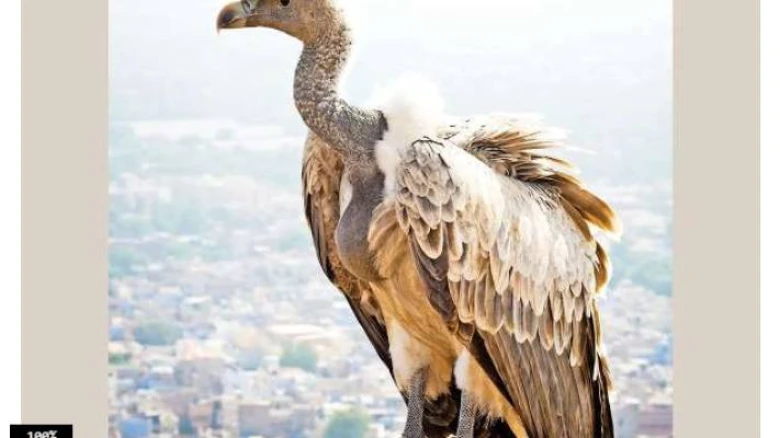The forest officials of Surendranagar are concerned after an adult White Rumped Vulture (WRV) died in its nest in Bharat hamlet, around 30 kilometers from Dhrangadhra. Only about 50 to 70 birds currently live in the Dhrangadhra Wildlife Sanctuary, the home of the Schedule-1 protected species. The number of WRVs in the state had been declining for some time. According to forest officials, the adult scavenger may have died of excessive heat, dehydration, malnutrition, or starvation. The carcass of the bird has been submitted for a postmortem. Once the results are out, the actual cause of death will be determined. Meanwhile, sources claim that another vulture was discovered unconscious in the same place. It was rescued and taken to a veterinary hospital for its treatment.
Chetan Goswami, a range forest officer (RFO) of the Dhrangadhra division, said that the local people of the Bharat village told them two days ago that a bird was found dead in its nest on a tree. Chetan Goswami said, "The area is outside the range of Dhrangadhra forest division but we are responsible to check and follow the procedure in case of death of a species that falls under Schedule-1,".
According to Chetan Goswami, a crew was dispatched to recover the dead bird, whose carcass was sent for autopsy. According to Chetan Goswami, the vulture species is the white-rumped vulture, and its number has been declining, putting it on the Schedule-I list.
Chetan Goswami exclaimed, "Since the bird died in its nest it could be because of the severe heatwave or starvation. We are awaiting the postmortem report and will take appropriate action once we know what killed the bird,".
According to the forest officials, white-rumped vultures have been found in caves near Banaskantha, Dantewada, a park in Kadi town, and other locations in Central Gujarat. So it can be seen that the population of white–ramped vultures has depleted at an alarming rate. We need to protect the existing white-rumped vultures so that it doesn't get extinct. If we don't become careful now and save them, they will become extinct one day, like the Dodo or the Woolly Mammoth.

Leave A Comment